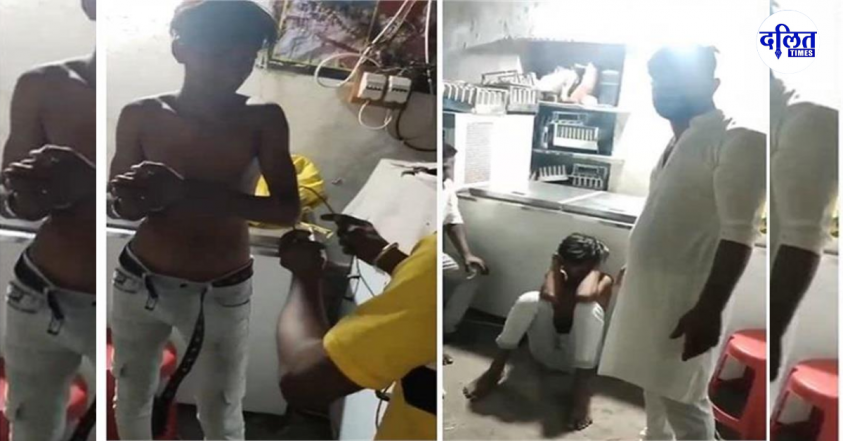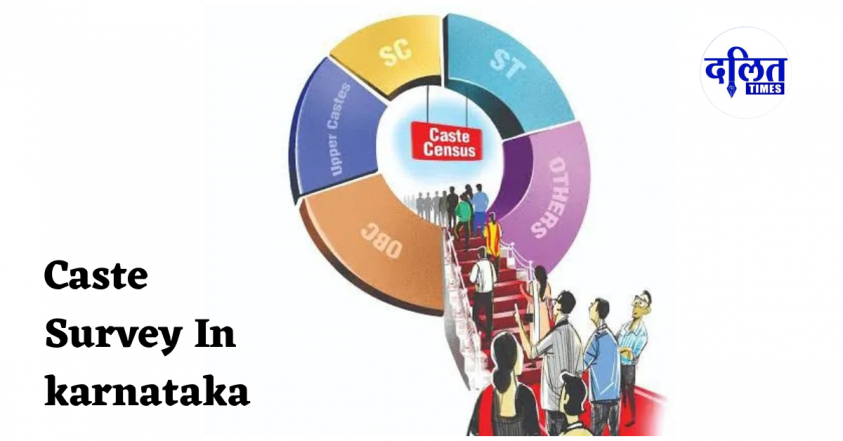In a deeply disturbing case that has sparked national outrage, two Dalit minors from Bhilwara district, Rajasthan, were reportedly subjected to brutal physical abuse and torture in Korba district, Chhattisgarh. The boys had merely asked for the wages owed to them by their employer—what followed was a horrific sequence of violence, false accusations, and systemic failure.
The Incident
According to reports, the minors had been working under a contractor in Korba when they requested payment for their labor. Instead of receiving their dues, they were falsely accused of theft a tactic often used to silence and intimidate the minor dalit workers. The employer and his associates allegedly detained the boys, beat them mercilessly, and even administered electric shocks in an attempt to coerce and threaten them. A video capturing parts of this horrific assault has since gone viral on social media, triggering widespread condemnation and drawing attention to the gross violation of human and labor rights.
Escape and Legal Action
The victims somehow managed to escape and returned to their native village in Rajasthan, where they reported the incident. A Zero FIR was filed at Gulabpura Police Station in Bhilwara district under provisions that allow victims to report cognizable offenses at any police station, regardless of jurisdiction. The case has been forwarded to the Korba district police in Chhattisgarh, where the incident occurred, for detailed investigation.
Also Read : April 14 in New York City: The World Bows to Babasaheb
Legal Framework Violated
This incident raises serious concerns not only about labor exploitation but also about caste-based violence. Several key legal provisions appear to have been violated:
- The Scheduled Castes and the Scheduled Tribes (Prevention of Atrocities) Act, 1989: Protects Dalits and Adivasis against violence, discrimination, and humiliation.
- Bonded Labour System (Abolition) Act, 1976: Forbids forced labor and exploitation, particularly of vulnerable communities.
- Indian Penal Code (IPC), Sections 323, 342, 354, 506: Addresses physical assault, wrongful confinement, and criminal intimidation.
- Child Labour (Prohibition and Regulation) Act, 1986 (Amended 2016): Prohibits employment of children below 18 years in hazardous conditions.
Given the age of the victims and the nature of the abuse, this case may also warrant charges under the Protection of Children from Sexual Offences (POCSO) Act if any further violations are uncovered during investigation.
A Reflection of Deep-Rooted Injustice
This heinous act underscores two urgent and persistent issues in India: the exploitation of vulnerable labor especially inter-state migrant workers and the deeply entrenched caste-based discrimination that continues to manifest in horrific forms. Dalit workers, particularly from rural and tribal areas, are often employed in unregulated sectors without formal contracts or legal protections. When they demand their rightful wages or protest exploitation, they frequently face retaliation, intimidation, or violence.
The Road Ahead
Also Read : Burnt Bodies, Silent Systems: The Caste War in Prayagraj that India Won’t Name
Public outrage has rightly demanded swift and decisive action. The state governments of both Rajasthan and Chhattisgarh must ensure:
- A fair and time-bound investigation by Korba district police.
- Arrest and prosecution of the employer and all those involved.
- Compensation and rehabilitation for the victims.
- Enhanced enforcement of labor and caste protection laws across state borders.
- Monitoring mechanisms for interstate labor contracts involving minors and marginalized communities.
Assault of Pahari Korwa Laborer in Rajpur
In August 2023, Mitku, a member of the Pahari Korwa tribal community, faced brutal violence after his wife asked a local employer, Samid Ansari, to release pending wages for tomato harvesting. Instead of honoring the request, Ansari and his three brothers violently assaulted Mitku and others. The laborers were forcibly taken to a poultry farm—amounting to illegal detention under Section 342 of the Indian Penal Code (IPC). The police intervened, rescuing the victims and arresting the accused.

This incident not only highlights wage exploitation but also the additional vulnerabilities faced by members of Scheduled Tribes, who are supposed to be protected under The Scheduled Castes and the Scheduled Tribes (Prevention of Atrocities) Act, 1989, which criminalizes any act of violence, intimidation, or economic exploitation against SC/ST individuals.
Raigarh Factory Workers Beaten for Protesting Wage Denial
In December 2023, contract workers at a factory in Raigarh peacefully protested to demand long-overdue wages and raise basic workplace concerns. Rather than being met with dialogue, they were physically assaulted by company-deployed security guards. The use of force against peaceful demonstrators is not only morally unacceptable but also violates Article 19(1)(c) of the Constitution of India, which guarantees the right to assemble and protest peacefully.
Also Read :Dr. B.R. Ambedkar and the Reserve Bank of India: The Forgotten Intellectual Architect
Moreover, under The Industrial Disputes Act, 1947, workers have a right to collective bargaining and lawful strike action. The company’s response also raises potential violations under the Contract Labour (Regulation and Abolition) Act, 1970, which mandates that principal employers ensure prompt payment and safe working conditions for contract workers.
A Pattern of Abuse and Legal Oversight
These three incidents are not isolated but part of a widespread pattern of abuse against informal and contract laborers across India. Employers exploit the lack of awareness, systemic delays in justice, and weak enforcement of labor laws especially in tribal and underdeveloped areas.
What’s worse, many workers are unaware of their rights under the following laws:
- Minimum Wages Act, 1948: Ensures payment of statutory minimum wages.
- Payment of Wages Act, 1936: Mandates timely payment of earned wages and penalizes illegal deductions or delays.
- Bonded Labour System (Abolition) Act, 1976: Forbids any form of forced or unpaid labor.
- Occupational Safety, Health and Working Conditions Code, 2020: Consolidates worker safety and welfare rights.
These legal tools, while powerful on paper, remain poorly implemented in many regions including parts of Chhattisgarh where tribal and contract workers dominate the labor force.
Conclusion
This case is not just a legal matter it is a moral test of our democracy. No child, no laborer, and no Dalit individual should ever be tortured for asserting their most basic rights. The justice system must act not just as a reactive force but as a proactive shield for the most vulnerable among us.
The voices of these minors and other marginalized must not be lost in silence. Their courage to escape and speak out should ignite a nationwide reckoning on how we treat our workers and our children. Justice delayed is not just justice denied and it is injustice sanctioned.



